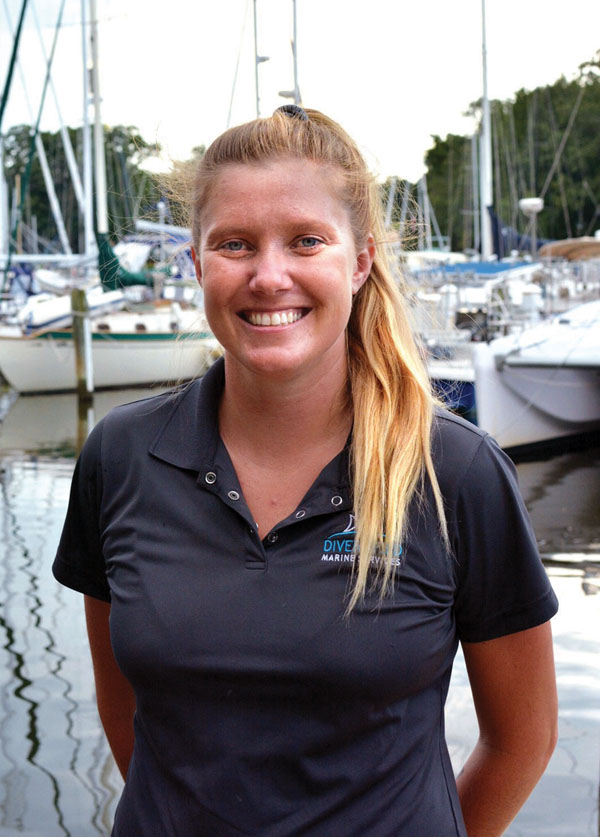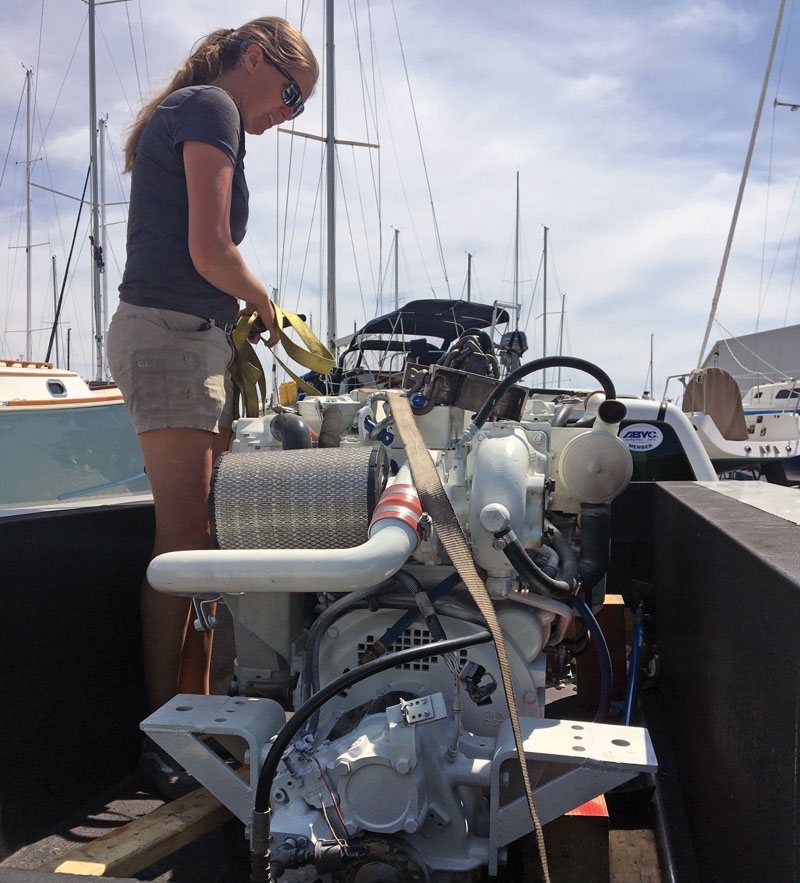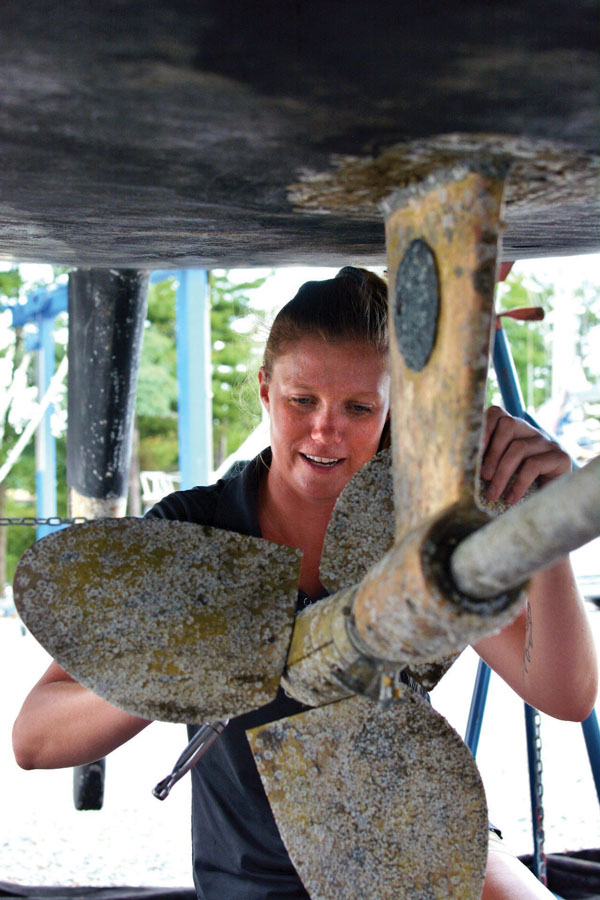Breaking the marine techician mold
Colleen Moore, American Boat and Yacht Council (ABYC) master technician and a lead technician at Diversified Marine Services (DMS), shares why she enjoys troubleshooting unsolvable problems and conquering the belief that women in the marine industry only work in the office.

What path led you to become a marine technician?
I grew up around boating, and I have an undergraduate degree in environmental studies and mathematics. I worked a couple of different government environmental jobs, but they weren’t as fulfilling as I thought they would be. I had dreams of working on the water because I’m mechanically inclined and like working with my hands, so it felt like a good fit.
What types of courses or training have you pursued before and since entering the industry?
I knew I wanted to be a marine electrician, so I took the American Boat and Yacht Council (ABYC) electrical course to get a certification that would make me more appealing to an employer. Since then, I have earned Airmar installer, NMEA basic installer, ABYC marine systems, ABYC gasoline engines, and Yanmar mechanical engines. Now I’m an ABYC qualified master technician.

What are some of the more challenging aspects of being a marine technician?
Every boat is different. There aren’t usually service or maintenance records kept by clients of what has been done on their boats. You see a lot of different problems and work on so many different projects, and it is hardly ever the same thing each day. Also, the older the boat is, the more people have likely worked on it before and could have created more issues than solved problems.
What are your favorite types of projects to work on?
I really like fixing issues that other people have tried to solve before me; problems that aren’t straightforward, ones that require more in-depth troubleshooting, or when a client says, “We’ve had this ongoing problem, and no one has been able to figure it out yet.”
There aren’t many female marine technicians in the industry—what are your thoughts?
I can understand why it’s like that, because traditionally it hasn’t been very welcoming to female techs. It’s been a male-dominated industry and the work is physically demanding, so it’s intimidating. There’s not a lot of support out there for women. It’s not as if the schools, companies, and shops are going to job fairs and reaching out to girls.
I think a big reason is because of the physical strength and harsh working conditions. I’ve been a marine technician for just over five years, and I’ve never encountered any other marine techs that are female; that’s how rare it is.

What has been your experience training and working in a male-dominated field?
At first, it’s difficult to earn respect and trust among co-workers and even from clients. You have to prove yourself, (as with) any job, but probably more so. I feel as if now I have the respect of the people whom I know and know my work in the industry. I’m more confident in my own abilities, which helps.
What is it like working with clients as a female technician?
Majority of the time, when I call to discuss going to work on someone’s boat, the client is confused and think that I work in the administrative office. They will repeatedly ask me to tell the technician this or that and are usually taken aback or are not as trusting of my work because I’m a woman. One time, I was there to help troubleshoot an issue that my coworkers were working on, and a woman said to me, “So, they let you out of the office today?”
What advice would you give to someone looking to become a marine technician?
Learn as much on your own, outside of the workplace, as you can. The more you expose yourself to information, the better a technician you will be. Find a company that supports ongoing training and has solid senior techs to teach you the right and wrong ways to do things.
I consider myself lucky to have started working at a company like DMS because they do all sorts of marine services, so I was able to learn about so many different aspects which has made me a very well-rounded tech, rather than pigeonholed into one specialty.
Do you still find time to enjoy boating and getting out on the water?
Definitely! I get out on the water doing a lot of watersports: wake surfing, fishing, and sailing with friends, at least when I’m not helping them fix their boats.
Interview by Chelsea Co




